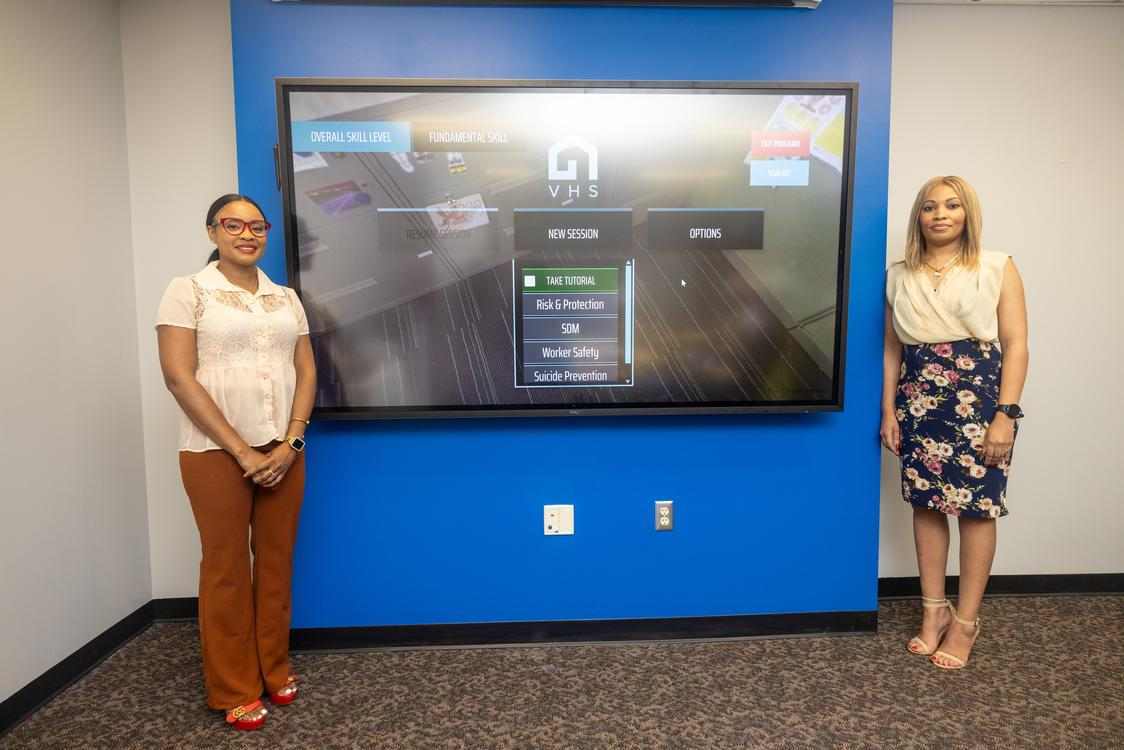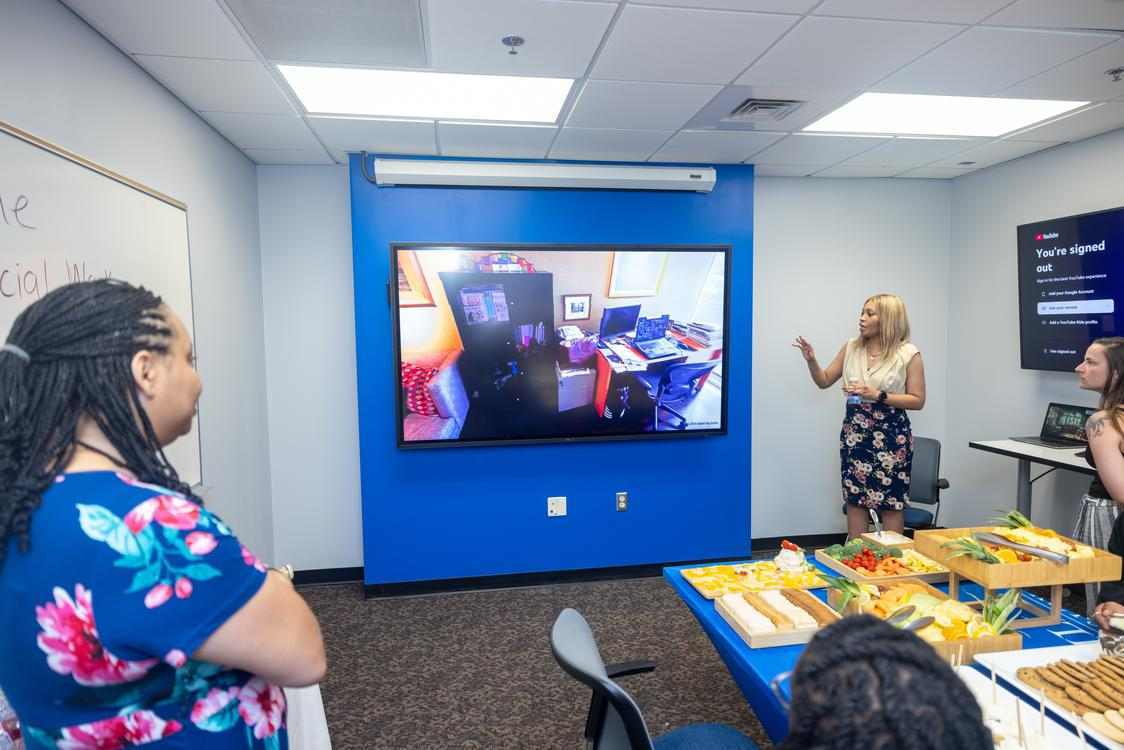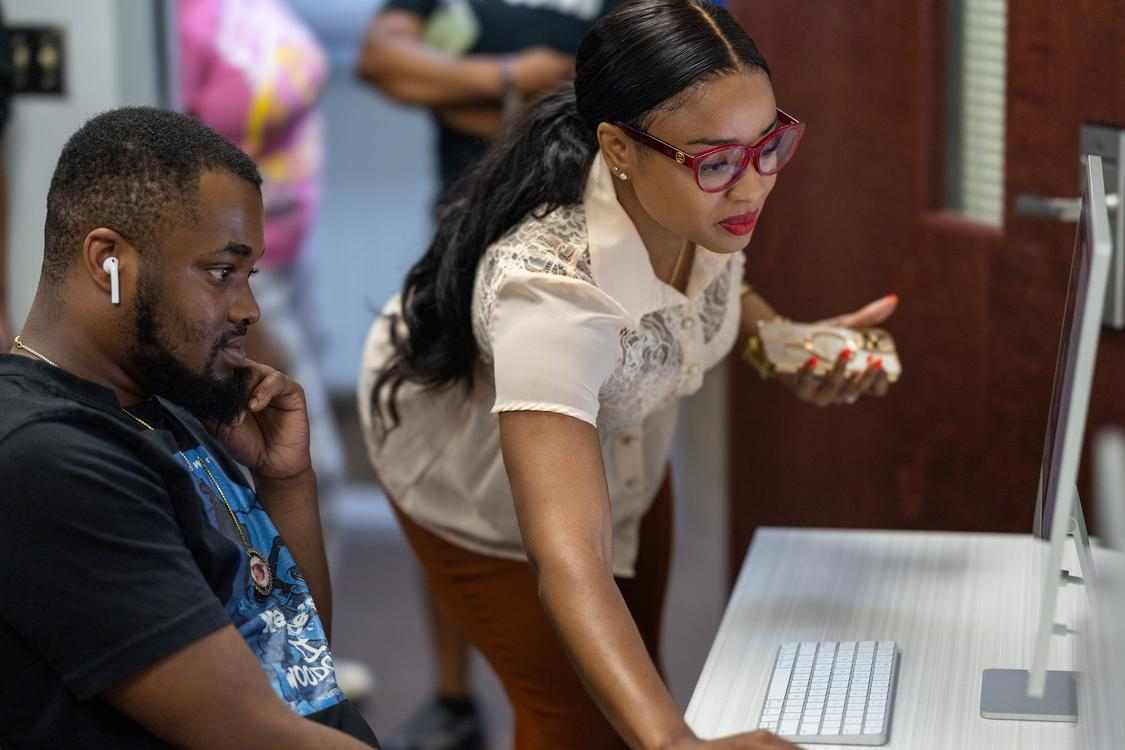Building Confidence Through Simulation
FAYETTEVILLE, N.C. — Fayetteville State University’s School of Social Work has launched a state-of-the-art Simulation Skills Lab to improve practical training for students. Located in room 222 of the Lauretta Taylor Building, this innovative lab provides aspiring social workers with immersive tools and technology to manage real-life scenarios effectively.
Associate Professor Erica Campbell, Ph.D., and Assistant Professor Michelle Bates, Ph.D., led the development of the lab after securing a $55,000 grant to enhance education related to HIV/AIDS and public services.

Associate Professor Erica Campbell, Ph.D., and Assistant Professor Michelle Bates, Ph.D.
The lab features advanced simulation technologies, including interactive software developed in collaboration with Genius Academy. This platform allows students to interact directly with virtual clients through audio and video communications. The software meticulously analyzes their responses, including spoken content and tone of voice, offering detailed feedback that guides students toward achieving a high level of proficiency.
Currently, the simulations focus on scenarios like food insecurity and HIV/AIDS. Plans are underway to incorporate other critical areas, such as intimate partner violence and mental health. Given that the social work program offers a concentration in mental health, future simulations will enable students to interact with clients experiencing various mental health conditions.
Additionally, the lab has a virtual reality (VR) setup that allows students to simulate home visits. They can virtually navigate through client homes, exploring environments ranging from orderly to chaotic, and even physically interact with items within these virtual settings. This hands-on approach significantly enhances students’ observational and analytical skills.
Assistant Professor Michelle Bates highlighted the lab’s educational impact: “We hope to boost self-efficacy and increase confidence so that when students take on their roles, they already have some experience in these situations.”

Interactive lab demonstration
The lab’s integration into the existing social work curriculum is already underway. For instance, Yolanda Massey-McCullough’s summer child welfare collaborative class, which prepares students for roles in child protective services, will utilize the lab extensively to simulate realistic home visit scenarios.
The lab also provides instructors with real-time insights into student performance, helping identify areas such as empathy or communication that may need further development.

Fayetteville State University’s new Social Work Simulation Skills Lab aims to bridge the gap between classroom instruction and real-world application. It equips students with the confidence and competence necessary to excel in their professional journeys.
